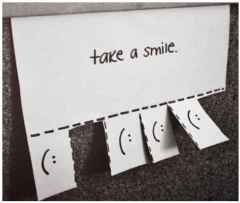 I did not write this, I am sharing it … great advice!
I did not write this, I am sharing it … great advice!
At The Huffington Post’s first ever women’s conference recently in New York, executives, politicians, physicians, celebrities, authors, filmmakers, journalists, nutritionists and more gathered to discuss the critical issue of how to begin to measure success beyond money and power, according to a third metric: well-being.
Hosted by Arianna Huffington, president and editor-in-chief of The Huffington Post, and Mika Brzezinski, co-host of MSNBC’s “Morning Joe,” the conversations over the course of the day yielded so much wisdom that they decided to collect some of the highlights in one place.
Maybe you’re just starting out in your job. Maybe you’re on your way but feeling torn between work and family commitments. Or maybe you’re in a leadership position but desperate for ways to infuse your life with more joy. In any of those cases, this advice will help you succeed on your own terms — and enjoy that success a little more.
1. “First of all, you have to work hard and earn it.”
That was White House senior advisor Valerie Jarrett’s basic but essential advice to young women on HuffPost Live during Thursday’s conference.
Once you’ve done that, you may be surprised what happens when you ask for more money or other perks. If you don’t do it, all of the strategizing and networking in the world can’t help you.
2. You’re interviewing them, too.
“When you’re in a job interview, you should remember it’s a two-way street,” said Jarrett. “Yes, you’re trying to make the best case for why you should be hired, but they need to make a case for why this is an environment where you’re gonna do well.”
3. Seek money and power for the change you can effect when you have them.
Discussing why young women often don’t negotiate for their entry-level salaries — which usually means they make less than their male peers throughout their careers — Cindi Leive, editor-in-chief of Glamour magazine, hypothesized, “They don’t want to be that person who believes in money and power above all else. They believe in their own personal growth, and they want to work for a company that has a mission.”
“All of that is fantastic,” she continued, “but if you fall too far behind men and you don’t fight for at least what you are worth, then you’re … not going to be the person who’s in charge and able to create a culture that has meaning.”
4. Your best ideas won’t come in the office.
When wellness expert Tony Schwartz asked audience members where they get their best ideas, their answers included “the shower,” “running,” “meditating,” “walking,” even “sleeping.” Not one person said “in the office.”
5. Stop apologizing for those ideas.
No, really. Comedian Susie Essman observed that when she first started doing standup, “All the women had funny material and they were apologizing for their material.”
Cindi Leive said she lays down the law with young women in her office, telling them, “You’re not allowed to do that thing that women always do when they’re pitching their ideas, which is say, ‘This probably isn’t a good idea.'”
6. Do not ask a stranger to be your mentor. Especially if that stranger is Valerie Jarrett.
“Sometimes young women come up to me and say, ‘Will you be my mentor?'” Jarrett told HuffPost Live. “A mentorship is a relationship, and it’s earned over time. Just as you earn a promotion, you earn that somebody else is gonna invest in you. If I recommend somebody for a job, that’s my reputation on the line too.”
7. That thing you’re doing isn’t multitasking.
“Multitasking is a myth — what we actually do is task-switching,” psychology professor Amishi Jha said. “Out of all the things our mind does, that switching function is the most depleting.” Psychologist Donna Rockwell put it a little more bluntly, “There’s no such thing as multitasking — you’re just not doing anything well.”
8. Introverts have an unexpected advantage.
Work can feel like an environment that requires being “on” all the time. But people who naturally keep more to themselves may have a leg up when it comes to dealing with stressful scenarios. “One of the benefits of being an introvert is that it’s not very hard for me in these situations to find a sense of calm,” said Susan Cain, author of Quiet: The Power of Introverts.
9. Hanging out with your coworkers is part of your job.
Who has time for that? If you want to get things done, you do, suggested Senator Claire McCaskill (D-Mo.). Taking time to socialize with other members of Congress helps them all work together much more effectively, she said. “When we are socializing, talking about things other than work, invariably the next time we try to work together, it just goes better. We listen to each other more carefully. I think compromise has a more likely chance of surviving.”
The female senators, she added, are good at setting aside downtime with each other. They get together every three months for dinner, she said, and once a year they invite the women on the Supreme Court to join, “and then we really gossip.”
10. Career moves that might look like a step backward can be a step forward.
Valerie Jarrett told the story she related to the graduating class at Wellesley when she delivered their commencement address on May 31. She went from a corner office at a law firm to a city government cubicle that looked out on an alley. “It took a lot of courage to basically walk away from the conventional knowledge of the track I should be on and go work for city government,” she told Huffington and Brzezinski. But as she told HuffPost Live, “From the very first day I moved in there, I knew that I was where I belonged.”
11. The promise of the women’s movement was not that you would be perfect.
“We felt that the women before us, the trailblazers and the people who broke glass ceilings and the ones that demonstrated and litigated and everything — we thought that they did that in order that we would be able to compete with men and do everything that women traditionally did,” Valerie Jarrett said.
As a result, she put pressure on herself to be a rock star at work and have a perfect dinner on the table every night. It was only when that proved impossible, when she had to ask for help, that she realized she had interpreted the message all wrong. “That wasn’t the lesson from the women before us. That’s not what they were fighting for. They were really fighting for us to make our own choices.”
12. So stop trying to make it look easy.
Mika Brzezinski told HuffPost Live, “Women, one of the things we do … is make everything look so easy. We’re supposed to be perfect. We’re supposed to be beautiful. We’re supposed to be thin. And it’s all supposed to come easy … And it isn’t. On every level. Trying to work, balance a family, succeed, make money, which should be as fundamentally important as everything else we do, it isn’t easy.” Brzezinski said she feels the pressure to make it look easy herself, which is why “we all need to have a true, honest conversation about not only the challenges we face but how we can help each other.”
13. And ditch the judgment.
Brzezinski brought up Anne-Marie Slaughter’s controversial Atlantic article “Why Women Still Can’t Have It All,” in which Slaughter recounted her decision to leave her position as director of policy planning at the State Department and return to academia.
As we saw in the aftermath of Slaughter’s article, many people -– including many women — are all too willing to judge women for their choices. Brzezinski argued that criticizing other women’s decisions isn’t useful. “There’s a certain partnership that we need to have with each other … because these decisions are so highly personal, they’re so highly charged. Quite frankly, we need to let some of that [judgment] go.” When women resist judging, Brzezinski said, “We make it easier for each other.“
14. “You can have it all, just not at the same time.”
Valerie Jarrett emphasized this when she spoke Thursday morning, and although comedian and author Ali Wentworth agreed, she had something to add. “I think that’s true, but I also think you redefine what having it all at [any] point in your life is.” Wentworth’s priority right now is her kids, she said — she turned down a job opportunity this week because it would require too much time away from them -– but being with them is “having it all” for her right now.
15. Listen for the laugh track.
Tanya Wexler, director of 2011’s “Hysteria,” a movie about vibrators, has a great approach to those times when nothing seems to go right: “Imagine your life as a sitcom, and when things start to get bad, just hear that laugh track.”
16. Don’t assume men have things figured out.
In conversation with Huffington and Valerie Jarrett, Brzezinski delivered one of the great lines to emerge from the conference. “People say men compartmentalize. I think they forget.”
17. Gratitude will get you through a lot.
“I am endlessly grateful. Every day I’m grateful,” said Sallie Krawcheck, former president of the Global Wealth & Investment Management division of Bank of America. “Yes, I worked hard to have the career that I have and plan to continue to do so, so I don’t want to take anything away from that. But how in the world I was born in this time to my parents in this world, right, as opposed to another time, a slum in India — I am so grateful. I’m grateful for everything.”
That gratitude proved very useful when she was fired from the job that had made her the most powerful woman on Wall Street. “I got grateful when I got fired,” Krawcheck said. “I said, ‘How many people get to be fired and it’s on the front page of the Wall Street Journal?’”
18. Worrying will not.
You think you’re being vigilant, that if you dare to think about something else, you might miss coming up with a solution. Or you may think that if you worry enough, convince yourself that the worst possible outcome is imminent, the gods will reward your self-flagellation with a positive result. It doesn’t work that way.
“Worrying is just a prayer for the worst possible scenario,” said Daphne Oz, co-host of ABC’s “The Chew.” And in most cases when you’re worrying incessantly, you have very little control over whether that prayer will be answered.
19. Everyone says passion matters, but passion really matters.
“I would add another element to that Third Metric, and that’s passion … and learning how to say no to things that are not in the service of that passion,” said Susan Cain. Cindi Leive added, “These work-life issues are so much easier when you really love what you do.”
20. If you love your work, that is good for your kids.
If you need or want to work rather than staying home with your kids, there are some good reasons not to feel guilty about that. For one, “going out and making stuff is awesome,” said Tanya Wexler. Susie Essman put the sentiment a little differently — and more ominously — when she paraphrase Carl Jung, “The most dangerous thing to a child is the unlived life of a parent.”
If a particular type of work is integral to your happiness, do it. Those dependent on you will be better for it.
21. Know the little things that bring you joy and do them.
“I’m looking at every day in my calendar as a playground — what can I do to have fun with it?” said Desiree Gruber, executive producer of “Project Runway.”
Ali Wentworth named a couple of her little pleasures when she said, “If I take a nap and I have a tiny slice of frozen chocolate chip cookie dough, I’m a better woman.” And Joanna Coles, editor-in-chief of Cosmopolitan, shared an unforgettable only-at-Cosmo joy trigger. “If I need a pick-me-up in the day,” she said, “I’ll sidle up to the lingerie editor’s desk and say ‘Charles, show me the latest bra.'”
22. Recognize when you’re leaning in too far.
Sheryl Sandberg’s call for women to “lean in” to their careers has resonated deeply, if sales of her book on the issue are any indication. But it’s also important to know your limits and respect them.
“If I ‘lean in’ any farther, I’m going to fall over,” Cindi Leive said.
23. Assess what you can let go of.
Claire McCaskill recalled what a powerful moment it was when she realized, “I didn’t give a sh*t about dust bunnies under the bed.”
24. Work ultimately isn’t going do it for you.
We all have to worry about our own bottom line, but that’s just the bottom, the starting point. “We make a huge mistake when we think that work is going to make us happy,” said writer Nell Minow. Claire McCaskill also had some wisdom on this theme: “My grandmother, an amazing woman, told me just before she died, ‘Just remember, Little Miss Full-Of-Yourself, the most important days of your life will be the days you don’t forget.'” Not many of those days will be the ones where you worked yourself into the ground.
25. Your life is your empire. Give the empress some respect.
“Women are not managers, they’re leaders. We’re all running an empire. When you’re running a home and a career and taking care of yourself, you’re a leader,” said Susie Essman. “Women have to embrace that power.”
26. You are the one you’ve been waiting for.
Talking about how to get more women interested in working in tech, Megan Smith, VP of Google[X], discussed the need to sell women on tech as an opportunity to make an impact. “I love the expression: ‘We are the ones we’ve been waiting for,'” she said.
No matter your field, it’s quite possible that you are the one you and everyone around you have been waiting for.



 There comes a point when we realize that some of the people we have held close are around us because we think we want or need them to be there and not because they add to our lives in a positive way. On closer inspection, they may event create the drama that we desperately try to avoid.
There comes a point when we realize that some of the people we have held close are around us because we think we want or need them to be there and not because they add to our lives in a positive way. On closer inspection, they may event create the drama that we desperately try to avoid. ur intuition. Ask the tough question:
ur intuition. Ask the tough question:









